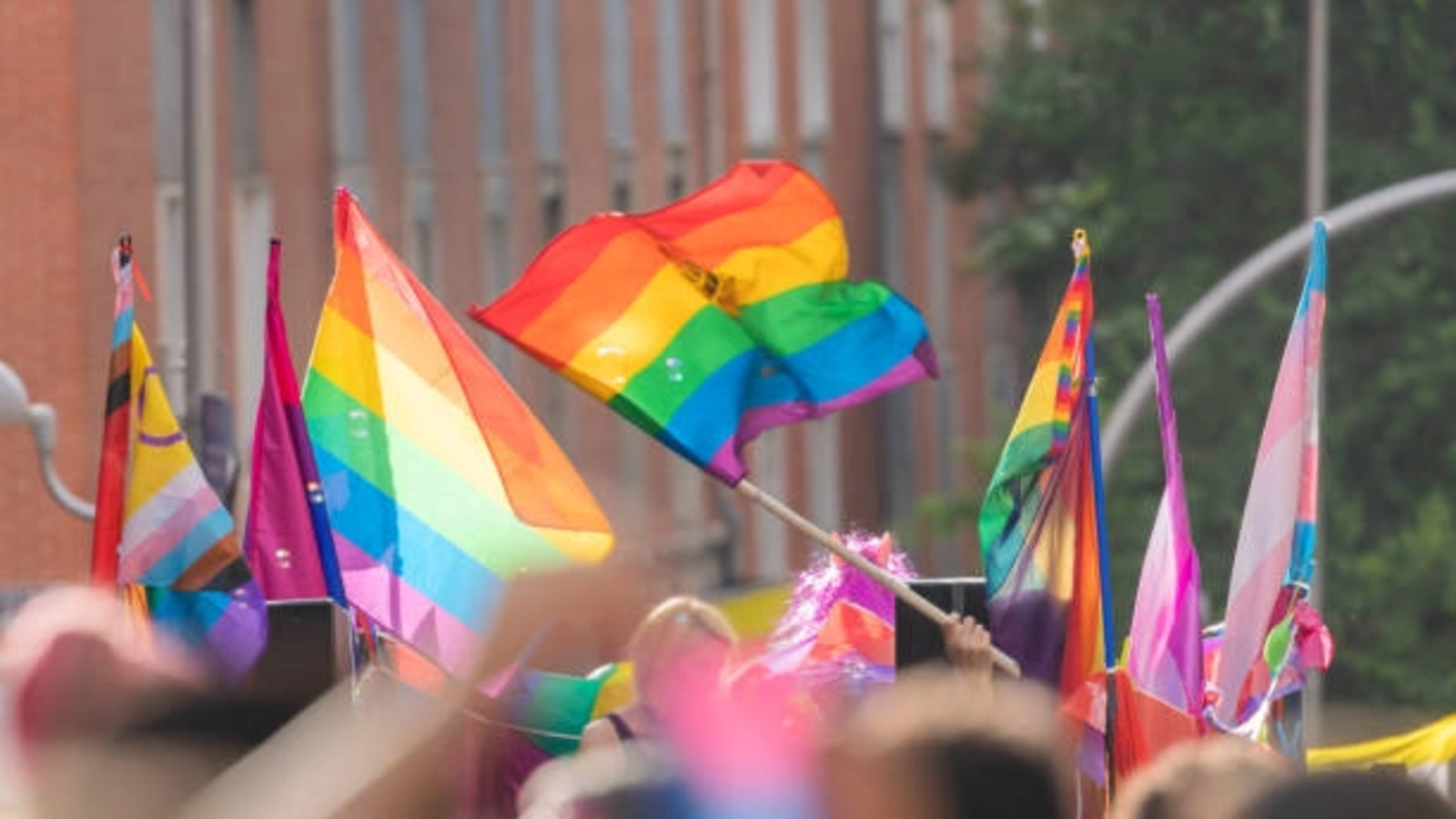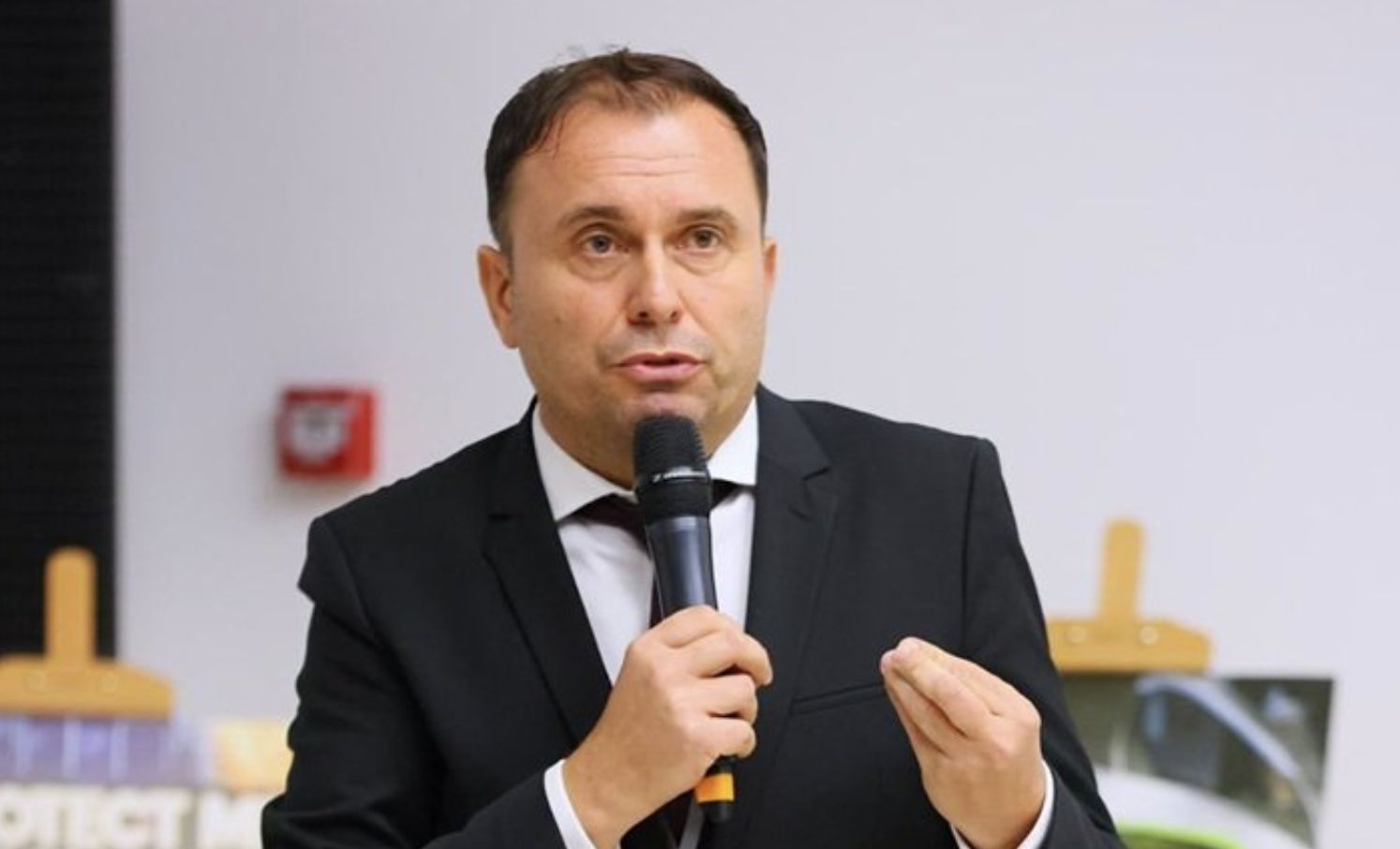While social acceptance of LGBTIQ+ people has increased across the EU in the last five years, the rights of sexual minorities are under pressure in the EU. The latest move by Slovakia to restrict the rights of same-sex couples stands at odds with the bloc's strategy to promote the communities' rights and safety.
The EU's legal landscape for LGBTIQ+ people remains uneven and the communities' rights are increasingly under threat in some countries across the bloc. Differences in civil union and marriage laws between member states, combined with new legal restrictions in some countries, are testing the EU's framework for equality, agerpres reports.
In the latest blow to LGBTIQ+ rights within the EU, an amendment to the constitution of the Slovak Republic which says the country "recognises only two sexes, male and female" entered into force on Saturday (November 1).
The amendment also stipulates that only married couples will be allowed to adopt children, which effectively excludes same-sex couples, as they are not allowed to marry in the country. Surrogate motherhood is expressly prohibited.
Slovakia's constitution already defines marriage as a union between a man and a woman, following an amendment from 2014 when Nationalist Prime Minister Robert Fico was also in power.
The sweeping new change now sees national law take precedence over European Union law. It states that Slovakia's "sovereignty" regarding "cultural and ethical questions" should override EU law.
Fico, who returned to power in 2023, has often been at odds with the 27-nation bloc. Critics have warned that the constitutional amendment could bring Slovakia into conflict with the provisions of the EU treaties. The Venice Commission, an advisory body on constitutional matters to the Council of Europe in Strasbourg, a non-EU human rights organisation, had also reportedly expressed criticism in the run-up to the vote.
Slovakia's Public Defender of Rights, Róbert Dobrovodský, said the amendment is "not the path to a fairer and more humane country" and that "the possible withdrawal of the priority of fundamental rights and freedoms arising from international treaties and EU law over Slovak laws does not contribute to the legal certainty of the country's inhabitants - especially those who belong to minorities".
LGBTIQ+ is an umbrella term encompassing a diverse range of sexual orientations and gender identities beyond heterosexuality and cisgender identity. It stands for Lesbian, Gay, Bisexual, Transgender, Intersex, Queer/Questioning, and others represented by the +.
Within the EU, Hungary is also often criticised for its regressing on LGBTIQ+ rights. Nationalist Prime Minister Viktor Orbán has been rolling back the communities' rights in the name of child protection for years, and this year his governing coalition adopted legal changes aimed at barring Pride marches.
Uneven civil union and marriage rights in the EU
The legalisation of same-sex marriage is an ever-divisive issue across the EU. While some countries legalised it years ago, others still face strict rules and political deadlock.
On October 1, 1989, for the first time in the world, several gay couples in Denmark tied the knot in civil unions, giving their relationships a legal standing, but falling short of full marriage. It was the Netherlands that first allowed same-sex marriages in April 2001.
Since then, another 21 European states, including 15 EU member states, have followed suit: Andorra, Austria, Belgium, Britain, Denmark, Estonia, Finland, France, Germany, Greece, Iceland, Ireland, Luxembourg, Malta, Norway, Portugal, Slovenia, Spain, Sweden, Switzerland and the principality of Liechtenstein.
Some European states have authorised same-sex civil union but without having legalised gay marriage, including Italy, Hungary, Croatia, Cyprus, Latvia, the Czech Republic and the principality of Monaco.
Marriage usually provides full legal recognition of a couple, including rights relating to adoption, inheritance and social benefits. By contrast, civil unions only offer some of these protections and vary significantly from one country to another.
In Poland, plans to legalise civil unions have faced scrutiny for years, not only during the former government of the Law and Justice party (PiS) and the previous President Andrzej Duda, but also under resistance from current President Karol Nawrocki.
When in power from 2015 to 2023, the PiS government strongly opposed any ideas leading to legalising civil unions in Poland, despite the fact that nearly a million couples live in non-marriage relationships, including heterosexual and same-sex couples, according to 2023 data from Poland's Statistical Office (GUS). Promoting a Catholic viewpoint, PiS was against offering more rights to sexual minorities.
Current Prime Minister Donald Tusk's centrist party has pledged to legalise civil unions in Poland, a traditionally Catholic society that currently recognises full marriage only between a man and a woman. Several attempts to formalise civil unions in Poland, including for LGBTIQ+ couples, have failed over the past 20 years.
The government presented a draft law in October to legalise civil unions, including those between same-sex couples, in what it termed a 'step forward' for LGBTIQ+ rights. Under the draft "next of kin act", unmarried couples would gain rights on matters such as property inheritance, housing and medical information - though it would not allow those in same-sex unions to adopt children.
In the neighboring Czech Republic, same-sex couples can enter into a domestic partnership, but not marriage. Registered partnerships have been possible in the country since July 2006. People in the LGBTIQ+ community however still do not have the same rights as the majority of the society in the Czech Republic, participants of the Prague Pride parade told news agency CTK.
Bulgarian law also does not recognise same-sex marriages, even if they were legally performed abroad. While discrimination based on sexual orientation is not permitted in the country, the lack of legal recognition creates serious issues in cases involving parental rights and inheritance. If one legally recognised parent dies, the surviving partner and the child may be left without legal ties or representation, leading to complex questions about guardianship, inheritance, and the child's welfare.
In Croatia, same-sex couples can enter into a civil partnership that gives them almost all the rights of heterosexual couples, including the right to adopt children. The Anti-Discrimination Act prohibits discrimination on the basis of sexual orientation and gender identity. However, same-sex marriages were constitutionally prohibited after a 2013 referendum in which citizens voted to define marriage in the constitution as a union between a man and a woman.
EU seeks to boost LGBTIQ+ rights and safety
The European Union Agency for Fundamental Rights warned in a report in September that the LGBTIQ+ community was being "instrumentalised" in "a climate of increasing or persisting intolerance and bigotry, as well as intense online hatred campaigns through social platforms and in the public sphere".
In May last year, nine EU member states including Italy, Hungary, Romania, Bulgaria, Croatia, Lithuania, Latvia, the Czech Republic and Slovakia did not sign a declaration promoting European policies in favour of LGBTIQ+ communities presented by the Belgian Presidency. It was prepared on the occasion of the International Day Against Homophobia, Transphobia and Biphobia.
Last month, the European Commission said that while social acceptance of LGBTIQ+ people has increased across the EU in the last five years, LGBTIQ+ people continue to experience disproportionate and unacceptable levels of hate, violence and discrimination. It then adopted its LGBTIQ+ equality strategy for 2026-2030, which aims to fight against hatred and promote freedom and diversity in the EU and beyond.
In order to protect members of the LGBTIQ+ community from discrimination, the EU is also considering putting forward a proposal combatting hate speech online.
In a press release, the Commission also said it wanted to clamp down on "conversion therapy" - which is the pseudoscientific practice of attempting to change an individual's sexual and/or romantic orientation, gender identity or expression to align with heterosexual and cisgender norms - targeting LGBTIQ+ people. More than a million people signed a petition in May calling on the EU to prohibit "conversion" practices.
Nevertheless, the bloc's equality chief told news agency Agence France-Presse (AFP) that Brussels will stop short of introducing a ban on such practices. "We can't (ban) because that would be stepping on member states' competence," said the EU commissioner in charge of equality issues, Hadja Lahbib.
Lahbib made her stance clear. "Obviously, all 27 must ban them," she said.
The content of this article is based on reporting by AFP, ANSA, BTA, CTK, dpa, HINA, PAP, TASR, as part of the European Newsroom (enr) project.
































Comentează